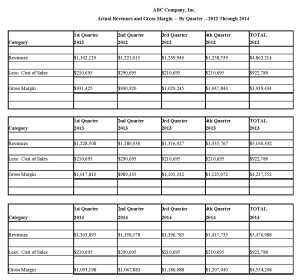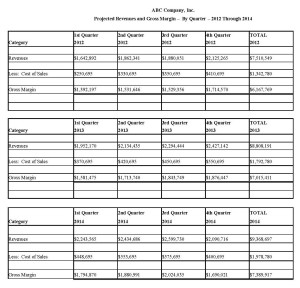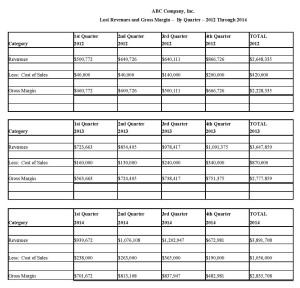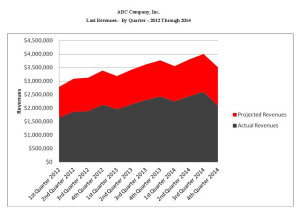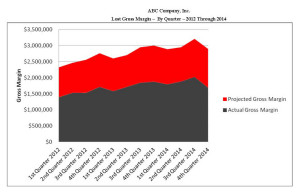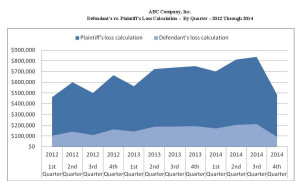David Anderson is principal of David Anderson & Associates, a Philadelphia forensic accounting firm that provides a full range of fraud investigation, fraud deterrence, litigation support and expert witness testimony services in Philadelphia and the Delaware Valley.
When it comes to the relatively small amount of money that’s kept in your company or organization petty cash account, you could be facing large losses unless there are fraud deterrence measures in place.
It might surprise you to learn that fraud investigations have uncovered cases of petty cash fraud that resulted in major losses, according to forensic accountant David Andersons. It is, however, not the amount of money that is available in petty cash at any moment, but the cumulative amount that is in there over weeks, months, or years.
“Nearly every business keeps an amount of cash on hand to pay unexpected cash expenses, reimburse employees for small expenditures or provide cash advances to employees who will be traveling,” said David Anderson, a forensic accountant and principal of David Anderson & Associates, a Philadelphia forensic accounting firm that provides a full range of fraud investigation and fraud deterrence programs in the Delaware Valley.
“I have seen petty cash funds as low as $50 and as high as $10,000,” he said. “While this might not seem like a lot, consider that companies with multiple locations usually have petty cash at each location. In addition, the petty cash fund can be replenished as often as several times a week. This means a company with a single petty cash fund of $1,000 that is replenished twice a week could have petty cash expenditures of as much as $100,000 per year.”
Anderson, a forensic accountant who also is a Certified Fraud Examiner in Philadelphia, notes that management usually looks at only the petty cash available at a given time (for example, $1,000) and not the amount of cash passing through the petty cash fund over time. As a result, he said, the amount of cash at risk is considered insignificant and the petty cash fund is usually maintained by a single “trusted” employee who is responsible for disbursing the funds, obtaining receipts for expenditures and requesting that the petty cash fund be replenished when needed.
“There seldom is any oversight or controls over the employee’s management of the petty cash fund, and therein lies the potential for fraud,” said Anderson, a forensic accounting expert in Philadelphia who recommends that every company enact a comprehensive fraud deterrence program developed by an experienced firm that provides forensic accounting services in Philadelphia and the Delaware Valley.
The petty cash fund can be the starting point for an employee to commit fraud, Anderson said. It often starts off small as the employee simply “borrows” a few dollars for the weekend or until the next pay date. Initially, the employee may even leave an “IOU” note in the petty cash box or a check made payable to the company, and the employee usually returns the “borrowed” money as soon as possible, he explained.
But as time goes on and the employee realizes no one is watching, the dollar amounts “borrowed” get larger and the time it takes to return the money gets longer until the employee eventually stops returning the money at all, according to Anderson, a forensic accounting expert in Philadelphia with experience in conducting fraud investigations. When the amount of “borrowed” money approaches the petty cash fund limit, he said, the employee will manufacture reimbursable expenses so that the petty cash fund can be replenished.
“I recall one fraud investigation in which I discovered that the perpetrator had submitted multiple photocopies of the same receipt in the petty cash replenishment requests,” said Anderson, a Certified Fraud Examiner in Philadelphia. “In another case, I found handwritten “receipts” from service vendors for cash payments. Handwriting analysis showed that the signatures of the individuals who signed each receipt call came from the same person – the perpetrator.”
So, how do you combat petty cash fraud? There are several fraud deterrence measures that companies can implement to lessen the chance that petty cash fraud will occur in their business, explained Anderson, a forensic accountant whose firm provides a full range of forensic accounting services in Philadelphia and the Delaware Valley.
First, he said, management should conduct irregular “surprise” checks of the petty cash fund at least once a month during the year. These mini audits should occur at different times and different intervals. The day before pay day, late on a Friday and the day before a holiday are all times when the trusted employee might not expect anyone to be looking, Anderson said. In addition, check should be conducted two weeks apart, four weeks apart, or perhaps two checks close together. It is important that checks be conducted randomly to prevent the trusted employee from anticipating when they will occur, he said.
Next, someone at a higher level than the trusted employee should randomly and irregularly scrutinize petty cash replenishment requests, including comparing the latest request with several earlier requests, said Anderson, a forensic accounting expert in Philadelphia.
These two measures will go a long way toward ensuring that petty cash fraud is not occurring at your company, and that the petty cash employee knows that you are watching even this seemingly insignificant fund.
If you require the services of a Certified Fraud Examiner in Philadelphia or any other forensic accounting services in Philadelphia and the Delaware Valley, please contact the Philadelphia forensic accounting firm of David Anderson & Associates by calling David Anderson at 267-207-3597 or emailing him at david@davidandersonassociates.com.
About David Anderson & Associates
David Anderson & Associates is a Philadelphia forensic accounting firm that provides a full range of forensic accounting services in Philadelphia and the Delaware Valley. The experienced professionals at David Anderson & Associates provide forensic accounting, business valuation, fraud investigation, fraud deterrence, litigation support, economic damage analysis, business consulting and outsourced CFO services. Company principal David Anderson is a forensic accounting expert in Philadelphia who has more than 30 years of experience in financial and operational leadership positions and is a Certified Public Accountant, a Certified Valuation Analyst and a Certified Fraud Examiner in Philadelphia.

